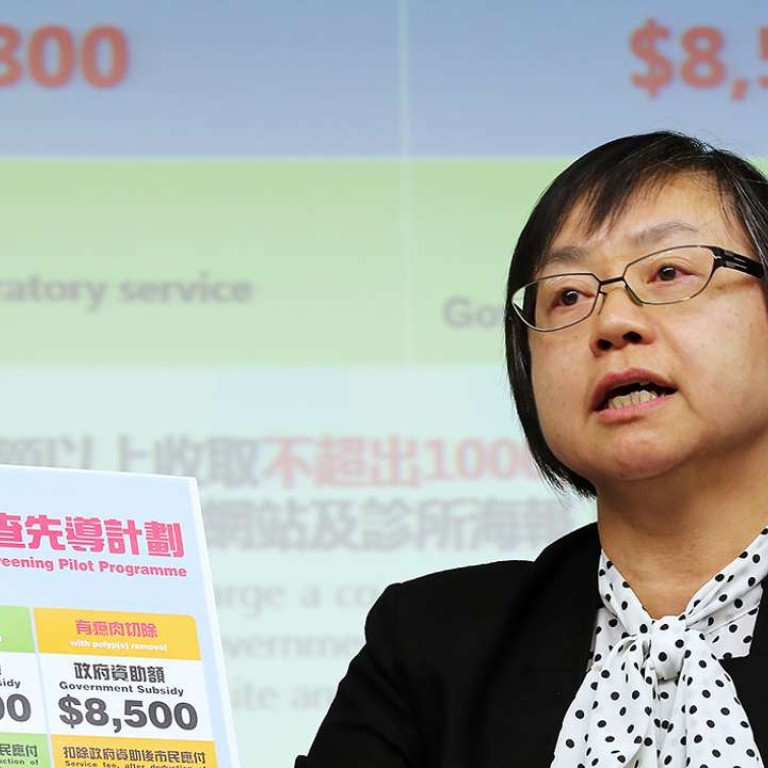
Colorectal subsidy scheme to fight Hong Kong’s most common cancer
Patients will be eligible for HK$8,500 relief if they need to undergo a colonoscopy
People aged between 68 and 70 will receive subsidies of up to around HK$9,000 to receive colorectal cancer screening in a three-year pilot scheme starting in September.
The Department of Health estimated it would examine up to 300,000 people aged between 61 and 70 throughout the period and screen out more than 300 early cases of the disease, the city’s most common cancer.
While patients would have to pay at most HK$1,000 out of their pockets for additional colonoscopy services, extra charges by primary care doctors had not been capped.
Elderly shy away from using government vouchers for body checks
Participants, who must be Hong Kong residents, would first be subsidised HK$280 to visit an enrolled doctor for a test to detect blood in faeces. If the result was positive, a second consultation, subsidised by an extra HK$280, would be arranged. Patients would be advised to take further checks with colonoscopy specialists enrolled on the scheme.
A colonoscopy service, without the removal of abnormal polyps, would be subsidised at HK$7,800, while HK$8,500 would be available for an examination and removal of tissues.
Those diagnosed with illnesses would be able to choose whether to stay in the private sector or seek further treatment in the public sector, but this would be outside the screening programme.
“We have taken reference on the market price in consultation and colonoscopy services and hope it will encourage doctors to participate,” said Dr Leung Ting-hung, controller of the department’s Centre for Health Protection.
Sharing of data between public and private clinics will boost Hong Kong’s health care system
But gastroenterologist Dr Pierre Chan said the subsidies would barely cover a doctor’s cost for a colonoscopy.
“Two to three nurses are required to perform a procedure – also rent for the clinic,” Chan said.
Dr Regina Ching Cheuk-tuen, head of the centre’s surveillance and epidemiology branch, explained the reasoning behind the cap.
“There is a great difference in the charges of primary care doctors and specialists. Participants might refrain from joining as colonoscopy services could possibly charge up to HK$10,000 to HK$20,000. The price was therefore capped,” she said.
Alex Lam Chi-yau, chairman of Hong Kong Patients’ Voices, said the scheme was a good start to encourage people to get screening.
Ching expected the first phase would last for under a year before extending to other age groups.

The health authority expected up to 300 primary care doctors and around 20 specialists would join the scheme.
Dr Henry Yeung Chiu-fat, president of the Doctors Union, expected participants would have to pay around HK$400 more for seeing primary care doctors.
“It is to cover the extra equipment on computerisation, a requirement to join the scheme,” he said.

